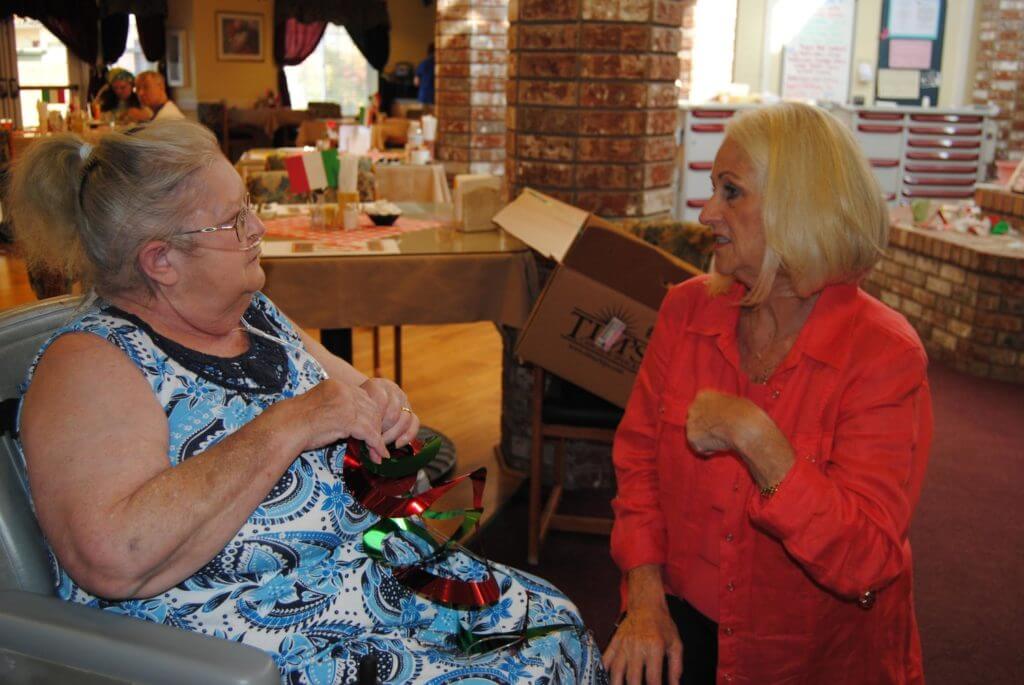This guest commentary was originally published on Yelmonline.com
We may be approaching the two-year anniversary of the pandemic, but those of us on the frontlines providing long-term care for our most vulnerable populations are still navigating what can feel like a day-to-day crisis.
For example, as the administrator of Easthaven Villa Assisted Living & Memory Care Community here in Yelm and as a nurse, I witness every day the level of commitment by our staff, residents and families to keep each other safe. Along with everything in our lives, from the grocery store to the gas pump, the cost of necessities is going up. In long-term care, we have necessities such as PPE, vital signs equipment, sanitizers and test kits, in addition to food, maintenance, housekeeping and general health care that we provide in our community. It is due to these increased costs that I hope our state extends emergency funding for Medicaid provided by the federal government so that our vulnerable populations are supported as the crises caused by the pandemic continue.
Nursing and long-term care was not my first career, but it is the first time that I felt like I was doing something that was deeply fulfilling. After caring for sick family members, I worked to become a nurse 10 years ago and have served in long-term care settings in Washington since 2014. I am proud to now serve as the administrator of our community here in Yelm where we put the health, safety and comfort of our residents and families first. At Easthaven, our staff of 42 currently provides care for our 69 residents, two-thirds of whom rely on Medicaid to support their long-term health care needs. The pandemic has challenged our morale — families, staff and residents — but we all always find a way to move ahead.
I know that our foundation for providing long-term care is strong, but I worry about the effects of new regulations and directives during the pandemic — many of which will last long into the future — if we don’t meet these new requirements with sustainable funding support for our most vulnerable populations. It’s not just that food now costs double or triple what it cost in March 2020 or that an N95 mask costs $5 each when they previously only cost $1 or less. It’s that the needs of our long-term care communities are fundamentally different going forward now that we’ve all confronted this global pandemic. For example, new unvaccinated residents must spend two weeks in quarantine when they transition into our care, and staff must use full PPE when assisting the resident during this period. This is a necessary but difficult new requirement to guard against an outbreak, but it also is an example of how the demands on staff, residents and families are now different in our community.
In Washington, long-term care is a large and dynamic community across the entire state — 132,400 people work in long-term care (62% are nurses), providing support for 117,128 residents in our communities. As a community, we provide health care to serve a spectrum of needs in assisted living centers like Easthaven, skilled nursing facilities, adult family homes, supported living homes, adult day services, private duty nursing (including private duty nursing provided to children in group homes) and in-home care. We are all proud to be caregivers, but the sustainability of our work is directly challenged if we cannot extend emergency Medicaid funding. In addition to all the safety requirements and increased costs of goods, this emergency funding also helps us hire the staff we need to provide the high-level of care our residents deserve. It is even more challenging that we are fighting alongside every other employer to hire staff in a hyper-competitive economy.
We are grateful that our state’s leaders allocated emergency funding earlier this year that was granted through federal relief efforts. But we are hopeful that this emergency funding doesn’t sunset before the crisis is over. I am fearful that if this crisis doesn’t inspire a more sustainable way to support residents who rely on Medicaid for their care, we will just be creating a new crisis on top of the current one.

